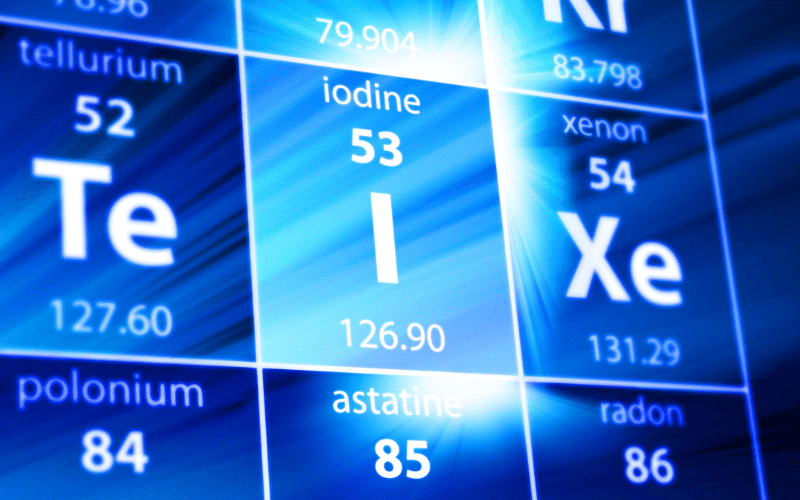Frequently Asked Questions About Iodine Deficiency Symptoms

1. What is iodine, and why is it important for the body?
Iodine is a mineral found in some foods and is crucial for the production of thyroid hormones. These hormones control the body’s metabolism and many other vital functions. Without sufficient iodine, the body can’t produce enough thyroid hormones, leading to potential health issues, including those listed in this article.
2. What foods are high in iodine?
Dietary sources of iodine include seaweed, dairy products, grains, and eggs. Iodine is also added to table salt in many countries, including the United States, to ensure that people get enough of this important mineral.
3. How can I tell if I have an iodine deficiency?
Symptoms of iodine deficiency can be subtle and might be easily confused with other health conditions. Symptoms like fatigue, weight gain, feeling cold, changes in heart rate, memory problems, heavy or irregular periods, depression, anxiety, and goiter are all potential signs. If you’re experiencing these symptoms, especially if they’re persistent, consult with a healthcare provider.
4. Can iodine deficiency be treated?
Absolutely. Treatment usually involves making dietary changes to increase the intake of iodine. In some cases, a healthcare provider may recommend iodine supplements. Remember, it’s crucial to discuss with your healthcare provider before starting any supplement regimen.
5. Can too much iodine be harmful?
While iodine is essential for health, too much can also cause problems, including thyroid gland inflammation and thyroid cancer. It’s crucial to consume iodine in the right amounts – not too little and not too much. Your healthcare provider can provide guidance on this.
6. Is iodine deficiency common?
Iodine deficiency is one of the most common nutrient deficiencies in the world, affecting nearly a third of the global population. While it’s more prevalent in developing countries, developed nations are not immune, especially among people who don’t use iodized salt or follow diets low in iodine.
Conclusion: Understanding Iodine Deficiency and Its Symptoms
The importance of iodine in our health cannot be overstated. This small mineral plays a colossal role, particularly in the proper functioning of our thyroid gland. From maintaining our energy levels to regulating our body temperature, aiding cognitive function to facilitating menstrual regularity, the benefits of iodine are multi-fold. A deficiency of this essential nutrient could potentially give rise to an array of symptoms, as outlined in this article. These include unexplained weight gain, fatigue, changes in heart rate, feeling cold, memory issues, heavy or irregular periods, depression, anxiety, and even visible signs like a goiter.
Understanding these symptoms of iodine deficiency is the first step towards effective management of this condition. Awareness enables us to spot potential signs of deficiency, making it possible to seek professional health intervention at the right time. While some symptoms might seem commonplace or unrelated to iodine, a pattern of persistent issues might indicate a deeper problem. It’s crucial to remember that iodine deficiency, like any health issue, deserves attention and care. Whether it involves making dietary changes, adopting lifestyle modifications, or seeking appropriate medical treatments, addressing iodine deficiency can significantly improve overall health and wellbeing. Remember, it’s your health – don’t leave it to chance.